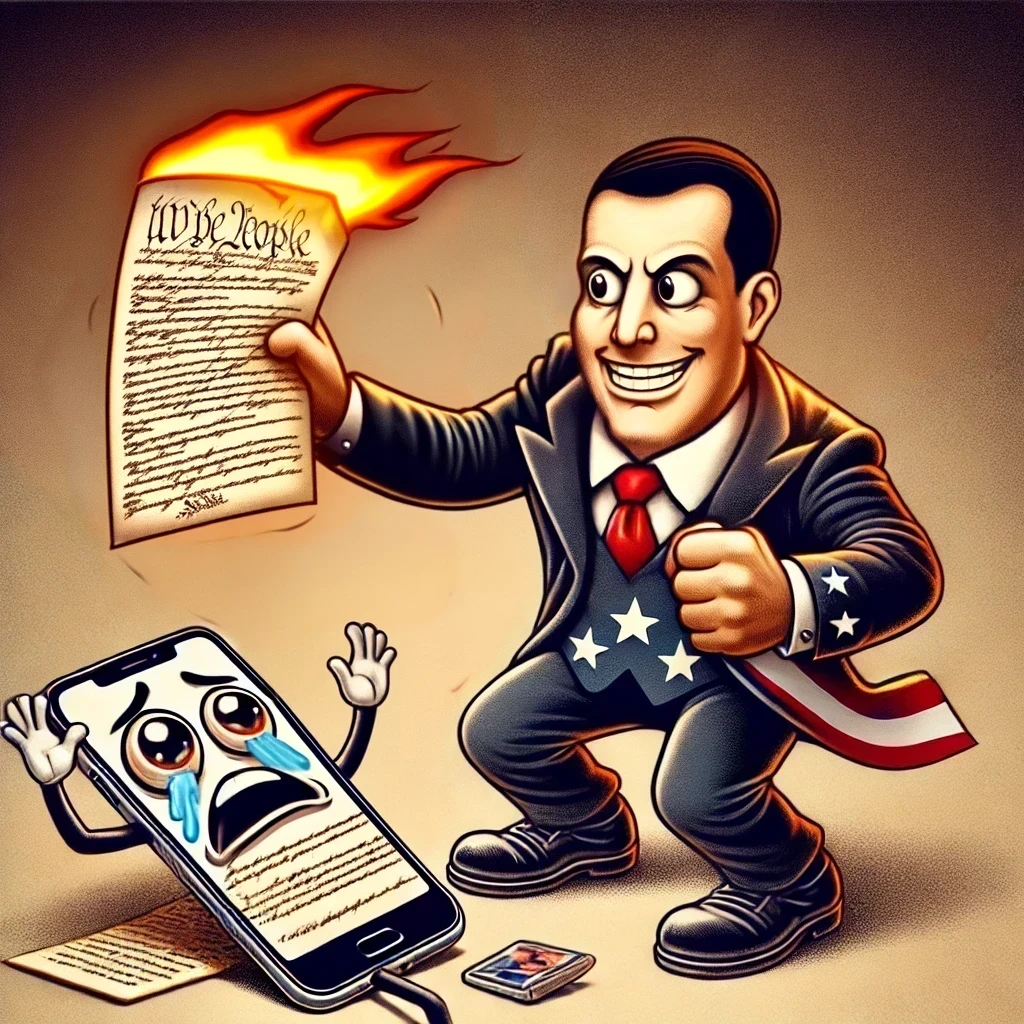The Telephone Consumer Protection Act (TCPA) of 1991 may have started with good intentions, but it’s time we acknowledge what it really is: an unconstitutional overreach by the federal government that tramples on the First Amendment rights of both businesses and consumers. The TCPA, which was designed to protect consumers from unwanted telemarketing calls, faxes, and messages, has grown into a bloated, overly broad regulation that limits the free flow of information and stifles free speech. Let’s break down why this law is not only misguided but likely unconstitutional.
The Right to Receive Information: The TCPA’s Fatal Flaw
In the landmark case of Lamont v. Postmaster General, the Supreme Court held that the First Amendment protects not only the right to speak but also the right to receive information. The Court struck down a law that required individuals to notify the post office before receiving certain political materials, ruling that the government cannot restrict access to information without violating constitutional rights. This principle directly applies to the TCPA.
The TCPA restricts various forms of communication—robocalls, pre-recorded messages, and unsolicited faxes—without considering individual preferences. It imposes blanket restrictions that limit listeners’ and receivers’ access to valuable information. Imagine a small business trying to inform its customers about a sale or a new product but getting silenced by the TCPA’s rigid rules. This law doesn’t just stop annoying telemarketers—it infringes on the constitutional rights of businesses and consumers alike by choking off their ability to communicate freely.
The Constitution guarantees a balance of interests between consumers and businesses. But the TCPA fails miserably at this. Instead of offering a tailored approach that respects consumer choice—like the well-established Do Not Call (DNC) registry—it opts for blanket bans that infringe on the rights of both communicators and receivers. If we can trust consumers to opt-out via the DNC, why can’t we trust them to opt-in when they choose to? The TCPA’s overreach ignores this basic trust and goes too far.
The Chilling Effect on Speech
The TCPA’s real danger lies in its chilling effect on constitutionally protected speech. Businesses are self-censoring to avoid liability, scared of massive fines that can cripple small enterprises. Every day, legitimate communication is silenced, not because of consumer demand, but because the TCPA looms over their heads like a legal sledgehammer. Consumers are not just protected from spam—they are deprived of the very information they might find valuable.
And make no mistake, this impacts our broader democratic discourse. When businesses and individuals fear speaking out, when they restrict their messages to avoid the legal minefield that is the TCPA, we lose access to a diversity of voices and ideas. The First Amendment was designed to protect the free marketplace of ideas, but the TCPA is shrinking that marketplace, leaving consumers with fewer choices and less information.
The TCPA vs. The Marketplace of Ideas
The Supreme Court’s ruling in FEC v. Citizens United reaffirmed that businesses, like individuals, have a right to engage in free speech, including commercial speech. This case emphasized the importance of a marketplace of ideas, where diverse viewpoints and information compete openly. But the TCPA disrupts this marketplace by imposing restrictions on how businesses can communicate.
By limiting methods like auto-dialers, prerecorded messages, and even unsolicited faxes, the TCPA hinders businesses from spreading information that is crucial to their survival. Whether it’s a small shop trying to reach out to customers or a non-profit informing people about important causes, the TCPA creates barriers that are simply unconstitutional. The government should not be in the business of deciding how businesses communicate with their customers. The First Amendment protects these communications, and the TCPA’s restrictions directly violate those protections.
State Law Chaos and an Unfair Burden on Small Businesses
Let’s not forget the added chaos caused by state-level TCPA regulations. As states draft their own versions of telemarketing laws, small businesses are left trying to navigate a legal landscape that changes from one border to the next. This patchwork of laws creates an impossible situation for small businesses, who are simply trying to comply with the law and keep their operations afloat.
Big corporations with massive legal teams might be able to handle this compliance nightmare, but small businesses are being crushed under the weight of confusing and inconsistent regulations. This lack of clear federal direction creates a hostile environment for entrepreneurs, stifling innovation and destroying opportunities for growth.
Opt-Out vs. Opt-In: The Need for a Balanced Approach
The Tenth Circuit ruling in Mainstream Marketing Services, Inc. v. Federal Trade Commission upheld the constitutionality of the DNC registry, a system that allows consumers to opt-out of receiving telemarketing calls. This ruling struck a balance between protecting consumers from unwanted calls and preserving the right to receive information.
The TCPA, however, takes a far more aggressive approach by requiring businesses to secure “express permission” before they can even communicate with potential customers. This opt-in requirement is a direct infringement on the constitutional rights of businesses to engage in free speech and the rights of consumers to receive information. We don’t need a government-mandated opt-in system when the DNC already exists as a sensible, balanced solution.
Conclusion: The TCPA’s Days Should Be Numbered
The TCPA, while created with good intentions, is a classic example of government overreach that is now causing far more harm than good. It violates the constitutional rights of businesses to engage in free speech and consumers’ rights to receive information. It stifles innovation, especially for small businesses, and creates a chilling effect on the free exchange of ideas.
We need a better solution—one that protects consumers from genuine harm without infringing on their rights. The First Amendment guarantees our ability to communicate freely, and the TCPA stands in direct conflict with that fundamental freedom. It’s time to rethink the TCPA and replace it with laws that respect both the Constitution and the people it was designed to protect.
